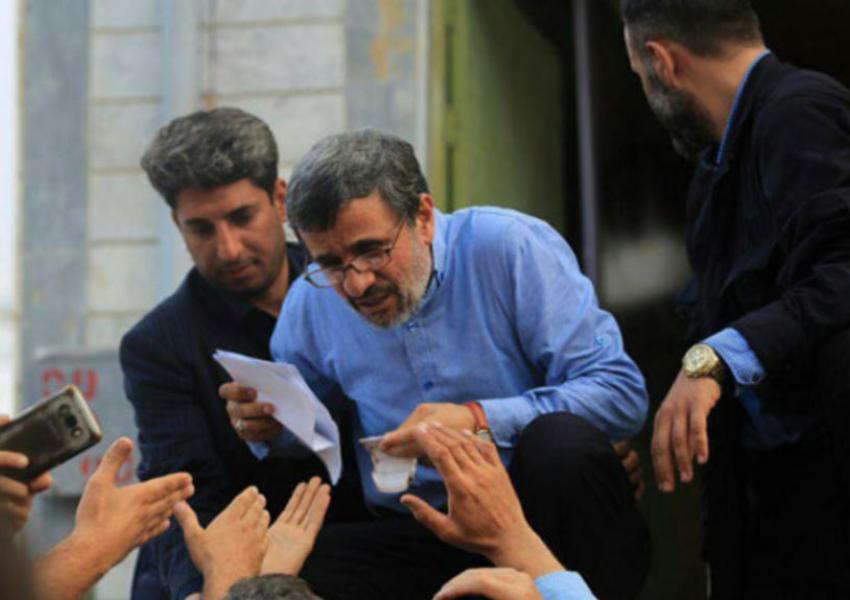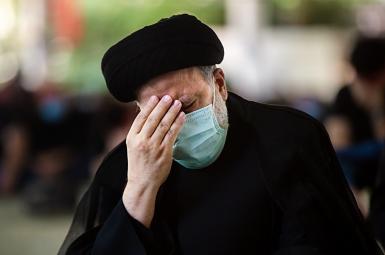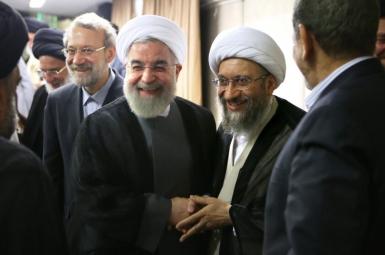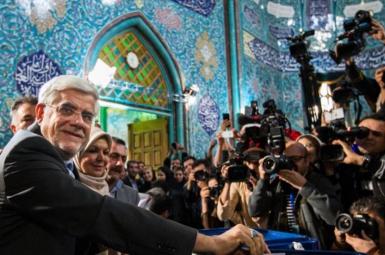
Where Does Iran's Paydari Party Go After The Death Of Spiritual Leader?
The death of the spiritual father of Iran’s ultraconservative party Paydari [steadfastness], Mohammad Taghi Mesbah-Yazdi is likely to adversely affect not just the party but its relations with former President Mahmoud Ahmadinejad and Supreme Leader Ali Khamenei.
Particularly at risk are Khamenei’s leverage among the ambitious Paydari ultraconservatives who have the upper hand in parliament and are eyeing victory in June’s presidential election.
Much has been said about the impact of the Mesbah-Yazdi's death on the party since his demise on January 1. But the impact on Ahmadinejad's political future and Khamenei's standing among Iran's conservatives have not yet been debated.
Having lost its spiritual leader will Paydari gravitate toward Ahmadinejad as a potential binding force? Hardline political activist Sadegh Koushki is adamant this is not the case. “Ahmadinejad is finished and talking about him would be a waste of time,” he told Fararu news website.
But Ahmadinejad has been lately extremely active, talking to foreign-based Iranian media normally frowned at by politicians in Iran, as well as giving interviews posted to social media platforms such as YouTube. In one, aimed at younger Iranians, he presented himself as a fan of Iran’s more or less illegal pop music, even mumbling some of the songs.
This, as well as his well-received provincial visits, cannot remain unseen by Paydari Party's members and leaders. Several reformist analysts including Sadegh Zibakalam have argued in recent months that Ahmadinejad can always win at least 10 to 15 million votes, with two letters sent in 2018 to Khamenei criticizing the leader helping renew his popularity.
Paydari can not only bank on Ahmadinejad's popularity among underprivileged Iranians who see him as the champion of the poor. Last year, Ahmadinejad suggested that his good ties with Saudi Arabia could help end the diplomatic deadlock between Tehran and Riyadh.
Jahan-e Sanat daily newspaper has said in a commentary that the recent appointment of Sadegh Mahsouli, a former military man and minister under Ahmadinejad, as the Paydari Party leader was in anticipation of Mesbah-Yazdi's death – reflecting a shift of power from the party’s religious Qom wing to its pragmatic technocratic Tehran wing.
But the most important implication of the new situation is its impact on Khamenei's leverage. Khamenei has never had any problem in communicating his ideas to the traditional conservatives, clerical organizations and the “neo-conservatives” like Mohammad Bagher Ghalibaf (Qalibaf), the parliamentary speaker.
Paydari has always been the non-conformist element among Iran's principlists. Many attribute the principlists’ defeats in the 2013 and 2017 presidential elections to Paydari and its last-minute withdrawal from broad conservative alliances.
While Khamenei used Mesbah-Yazdi as his channel to communicate ideas, advice and orders to Paydari, Mesbah’s death leaves no one else at a level through which Khamenei could communicate - which could lead the party completely breaking loose from the conservative establishment that has always been close to Khamenei.
If he cannot talk to Paydari, Khamenei would resort to his usual methods of ignoring, alienating, and if needed suppressing the unruly party. Knowing this, Paydari needs either to get close to Ghalibaf or to give up all ambitions to powerful political standing after the death of its spiritual leader Mesbah-Yazdi.







